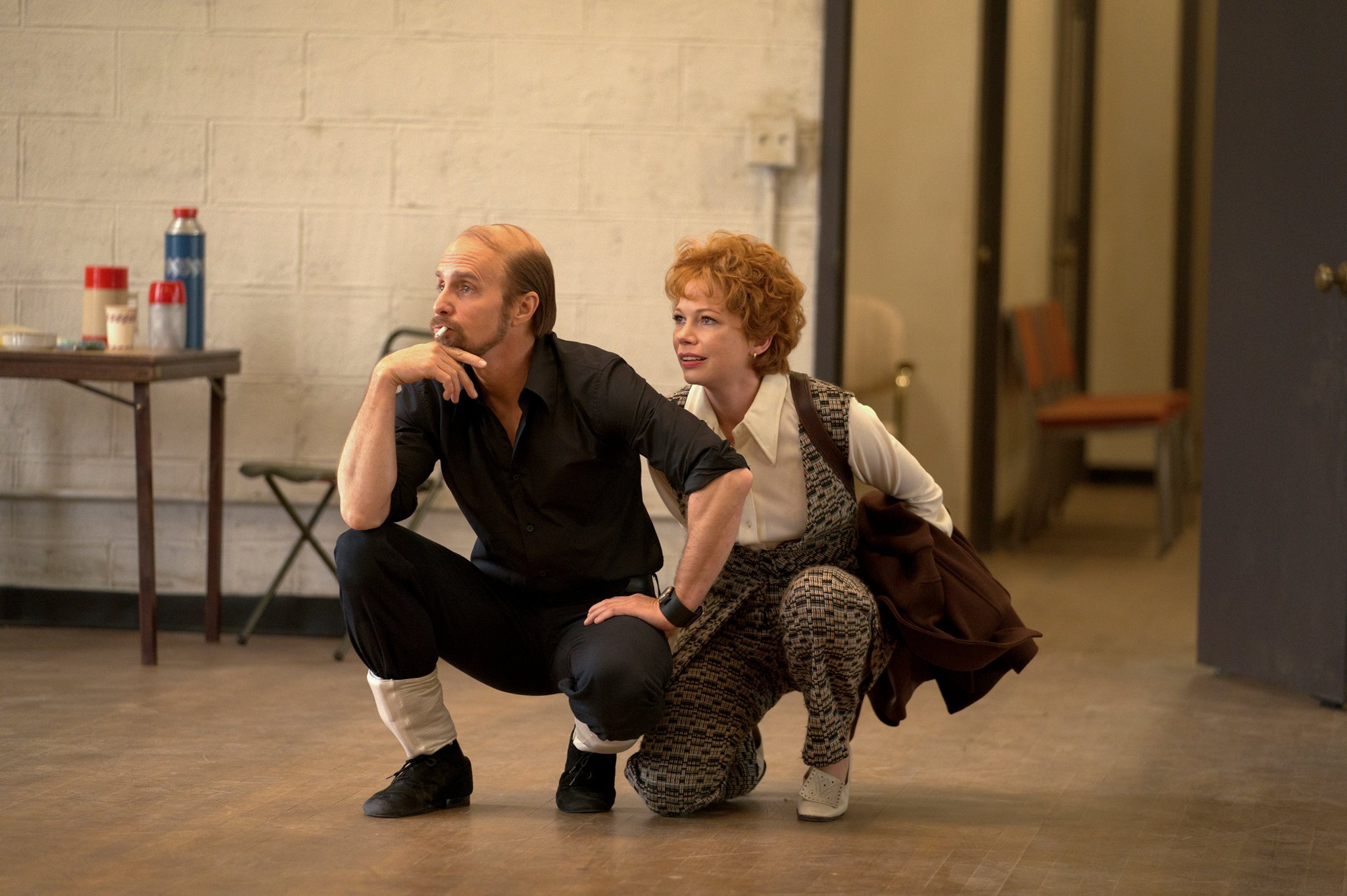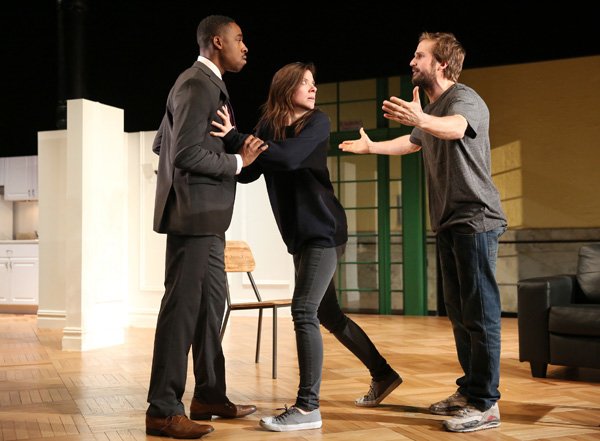ON THE WRITE PATH
WORDS BY ABI SLONE
Respect, 2021
Fosse/Verdon, 2019
The Americans, 2013-18
Buzzer, 2015
The Good Negro, 2009
Playwright, Emmy-nominated and Peabody award-winning television writer and producer, and screenwriter responsible for Respect — Tracey Scott Wilson is a visionary. And from Wilson’s works The Good Negro and Buzzer on stage, to her Americans and Fosse/Verdon triumphs, this New Jersey-born storyteller is just getting started.
THE CRONING: When you look at your life today, was it something you ever imaged?
TRACEY SCOTT WILSON: No. Never. I knew from the fifth grade that I wanted to be a writer, but I thought I'd write novels ‘cause I didn't really understand TV and film. It wasn't something I could grasp… even though I LOVE watching TV and films. And it just was not a career path that I saw a black woman taking. So I couldn't imagine it. Then when I sort of fell into playwriting, I quickly realized you couldn't really make a living doing play writing and even then, still didn't think TV and film was an option.
TC: What did you think was going to happen?
TSW: When I imagined my future, I thought, well, I'll stay here at my parents' house. And, uh, I'll just live here for the rest of my life and put together a living.
TC: And now?
TSW: I certainly do not for one second take for granted where I am. I never imagined being able to even own my own house. It's really surreal. One of the first things we did [when I started working in TV] was travel ‘cause that's something I never could afford… and go to the dentist. Immediately I got braces because for years I wasn't able to. So I had to take care of that. And that was a huge luxury to be able to go to the doctor for different things. I was just so satisfied with that.
The next thing was traveling. I could see these places that I never thought I would be able to see. You know, when I was growing up, I always loved to watch those PBS travel shows and I knew I wanted to do that. But once again, I just knew it was never something I could afford to do. When I was in school, classmates were like backpacking across Europe and things like that. And that just wasn’t a possibility for me. So to be able to travel finally was amazing.
I'm constantly pinching myself, you know, because now I actually see other possibilities.
TC: Okay. So how did it all begin?
TSW: When I was in fifth grade I had a teacher. Her name was Ms. Michelle. And we would have these writing contest where we would write a short story and then we would read our story. Of course, when you’re in the fifth grade, it's like a paragraph, maybe two paragraphs. It was once a week. And we would read it to the class and they would vote on the best one and I would win every time. She told me you're a writer and I just thought, ‘Okay. That's what I am.’
TC: And from there?
TSW: Well I decided I was a writer and to me that meant that I just wrote whatever I wanted, without realizing it was a profession. When I got older, I wanted to be an airline stewardess or a cruise director, like Julie. And then, when I got even older and people started asking what I was going to be, it was either a doctor or a lawyer. My mom was a nurse and my sister went to med school. And then I had a lot of relatives that were lawyers.
So when it came time to go to college, I thought I was going to be a lawyer because it was the closest thing to writing I could think of. I started taking these political science classes in college and I hated all the political science students…
I went to grad school to get a Master's in English with the emphasis in creative writing. During that time I had some trauma — my father passed away. I was very close to him. I went through a depression and I couldn't write for the first time.
TC: That must have been unsettling, to not be able to write.
TSW: Well, I had moved back home to be with my mom to help her. I had submitted my graduate novel and I got 30 rejections. It was back in the day when they used to send the novels back so it was literally a stack… I saw a brochure on my colleague's desk for these writing classes — fiction classes, poetry classes — and I thought I'll take a play writing class so I could break the block, and it hit me immediately, ‘Oh, I've been a playwright this whole time.’ It was immediate. Like a duck to water.
But I had gone to grad school already and I was lucky enough to have gotten a scholarship. So I didn't have any debt. And I certainly, wasn't going to go back to school, put on more debt. In New York City you could volunteer usher so I would volunteer three or four days a week to see shows for free.
I was on unemployment and I was still living with my mom. So I would go to the library and they had theatre and film on tape where you could see basically hundreds and hundreds of thousands of productions from around the world. You could see anything, except something that was currently running on Broadway. So I would read a play and then watch a production of it like three or four times a week. It was immersive, like I put myself through my own grad school.
TC: Do you miss playwriting?
TSW: It was an intense period of mourning when I realized being a playwright would not be my primary profession anymore. But I was able to bring a lot of the skills I used in playwriting into TV. But it was intense to sort of break up with it. I found my community, my people… but now a lot of those people are in TV.
TC: In an industry that is still dominated by white cis men, and within the discipline of writing, how does being you impact the stories you tell? What and how you create?
TSW: I think it was Polish writer [Nobel laureate Czeslaw Milosz] who said this thing I always loved: ‘When a writer is born into a family, the family is finished.” You don't realize how everything impacts writing until you see a pattern in your work. And certainly early on my work was about identity —. this idea of what it means to be black, what it means to be a woman, all these cultural markers and things that I grew up with. A lot of my work was dealing with that sort of existential crisis.
Now that’s been commodified. And as someone who started as a black playwright, I’m glad that there are so many more options, and we can talk about and make work around all the issues around those things — that’s how art grows. TV is becoming bolder. And, there are more opportunities to delve into complexity.
TC: Is TV a nice place to be at this stage of your career?
TSW: It is because there's just this insatiable need for stories. There are these different stories from all over the world and people are watching. Netflix just opened up the world, and the other streamers started to see these diverse stories and realized that they could make money and there was a hunger for that market.
When I first started pitching TV shows, I would say things like I wanted to write about class and race and sex and they would look at me like I had four heads. Now that's all they want to talk about. And the pandemic has turbocharged it even more, realizing that there were all these other stories, you know?
TC: What has been the biggest change in the industry, or to how you work, or to how you see things?
TSW: I think that now, there are writers that see people who are telling stories who look like them. When I was coming up it was still just very, very rare. It's nowhere near where it needs to be, but you can now read stories about creators, like Shonda [Rhimes], and people can see a path forward. They don’t have to say, ‘Oh, well, I'll be a writer by being a lawyer first.’ I think it's just an inspiration for people to see that and say, I want to do that.
TC: Are there things that you do now that you never would have when you started? Or things you did then that you would never do now?
TSW: Absolutely. I mean, when I first went out to interview for these TV jobs, and it took me five years to get a job, I just was trying to be whatever it is they wanted me to be. I would lie and say I watched shows that I hadn't watched, or that I like shows that I really didn't like, and it just never sat right with me. And the one time I decided that I was never going to lie again and was just going to be me, I got my first job.
TC: And now, Respect [the biopic starring Jennifer Hudson as Aretha Franklin and shortlisted for an Original Song Academy Award for “Here I am (Singing My Way Home)”], filmed just before the shutdown and released this fall.
TSW: Yeah. I know . It was kind of a miracle. We were in Atlanta from September 2019 until March 2020. We had to come into New York to film and finished two weeks before shutdown. So we were out there shooting before all the mandates. We really lucked out.
The film Respect is joyful and positive and what people need now. I can't think of a better time to talk about genius, you know?
TC: You’re always busy. What other work do you have on the go?
TSW: I’ve got an overall deal with FX. I've got a couple of pilots and I’m psyched about those, but can’t talk about them. Every runner I knew, when shutdown happened… we were just very fortunate to become busier than we ever were. It was not the case for many, many people, but because the industry knew that the lockdown would eventually end and they would want to hit the ground running when it did. And for many people, you know, TV and film was a lifeline.
TC: How does that feel knowing that something you’ve been working on, in and at for so many years is capable of brining such relief and escape?
TSW: It feels good to know that I am in a profession that is helping people through one of the most difficult times in history. It’s also great seeing how people are dying to actually go back into theatres and to share that communal experience.
Indeed.






